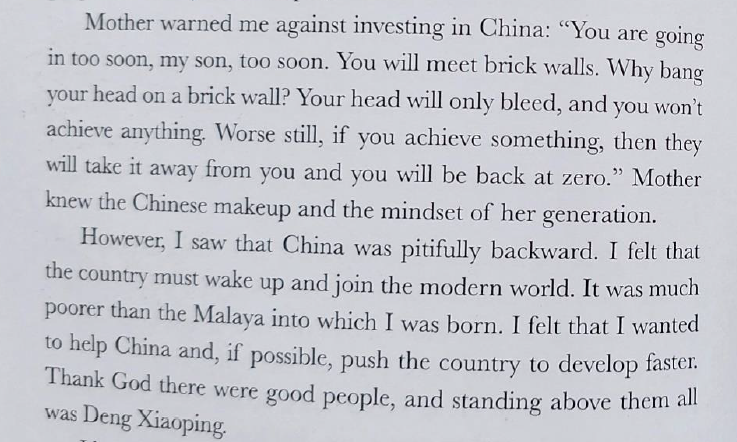Some men play Monopoly; Robert Kuok played Civilization—and he didn’t just win, he left the board standing, returned half his winnings to the other players, and quietly financed the next game.
Kuok made money the old-fashioned way: first rice, then sugar, then flour, then edible oils and along the way, regularly tapped by governments to build airlines, steel mills. His story is also somewhat akin a love letter to guanxi— the delicate, indispensable social tissue of business in Asia, where knowing the right people gives you first pick of the next big thing.
Amidst building immense success Kuok somehow pulled off what few moguls ever manage: being rich and (darewesay) likable. His brand of upright pragmatism feels like a lost art form—the kind that reveres old-school business ethics now considered radical in our greed-glossed market.
Take the moment he offered 15% of valuable shares at par value to staff and ship captains simply because they helped build the company; “I have always believed in some degree of socialism when you have made money,” he wrote, hawking back to Genghis Khan’s habit of sharing the spoils with his soldiers.
Throughout the book, Kuok recounts power plays that would make even a Netflix executive sweat, but he does so with the quiet grace of someone who once smuggled sugar not for profit, but to stabilize a continent.

When his Shangri-La project was delayed by a partner who dragged things out for 2.5 years, Kuok didn’t lawyer up—he pulled out, let the guy take a cut of forex profits, and didn’t even ask for capital gains back. Imagine that.
Similarly, when North Korea failed to deliver sugar after requesting a sale and even an extension, he fulfilled his commitments to his own clients by buying on the open market—and was coolly told by Pyongyang they’d be happy to explain if he came over. Lol!
Singapore, of course, gets a shoutout for its “city-slicker” snobbery—“They want to know who you are, your family, and if your grandparents were rich,” Kuok writes, which my Penangnite mum says sums up what she thinks of us Singaporeans anyway.
Read for: history, politics, entrepreneurship and culture